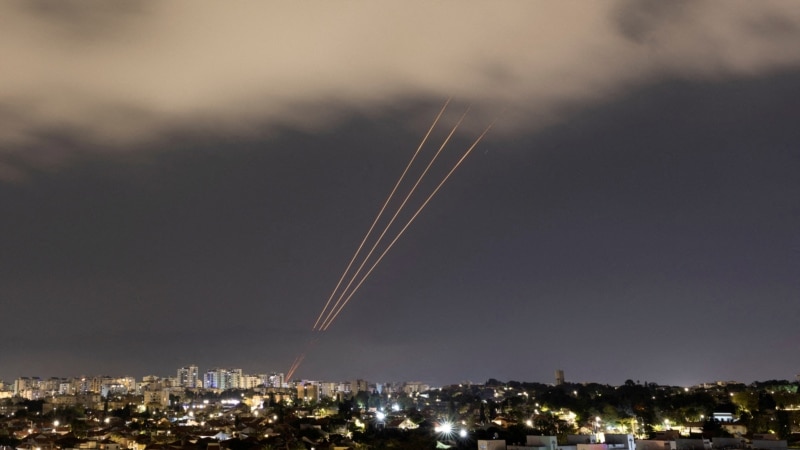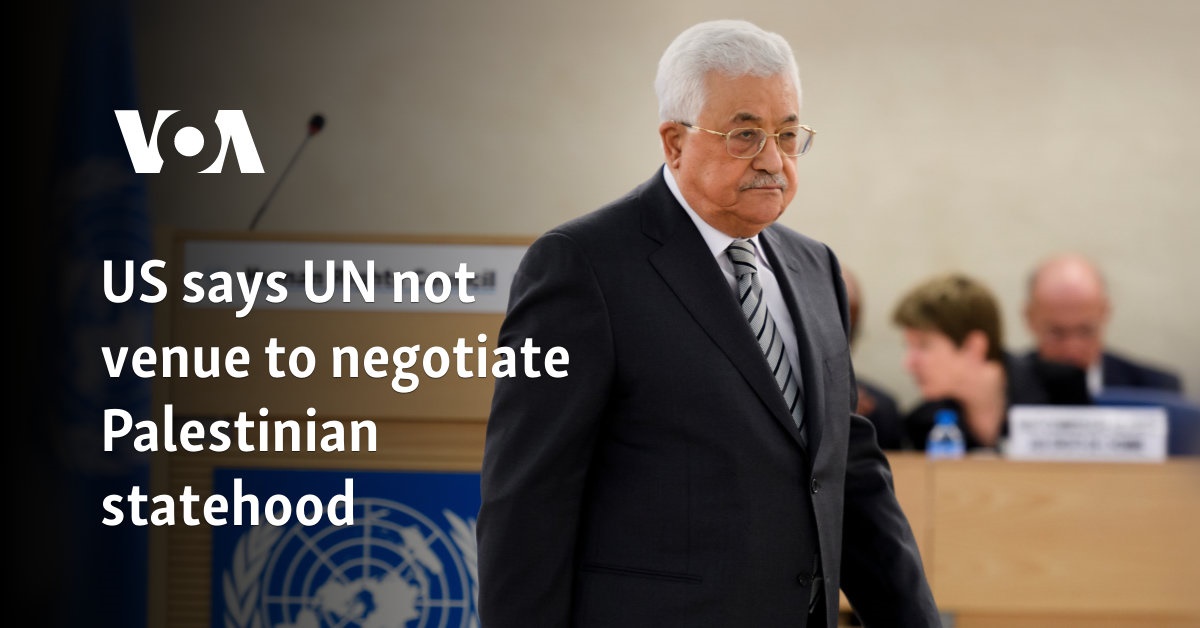Iraqis fear Israeli retaliation after Iranian attack

It is perhaps not surprising that Iraq is a hotbed of gallows humor.
But that old joke: “Iran and the West will continue to fight here until every Iraqi is dead” is no funnier now than it was a few years ago.
Hundreds of missiles and drones hovered over the Middle East from Iran to Israel this weekend, turning the region’s “shadow wars” into outright conflict. While further escalation is not imminent, people inside Iraq say they have long been in the line of fire and if the conflict continues like this it is likely to bring violence to them.
“Many people feel insecure, unsafe and their lives are threatened,” said Mazin Mohammed, a father of two and a public relations officer for a women’s rights group in Baghdad. “Especially Iraq is seen as one of Iran’s wings.”
Iraq is one of the few countries in the world with a Shiite Muslim majority and is home to several powerful Shiite militias backed by Iran. But it is also politically, religiously and ethnically divided, with about 45% of the country’s population non-Shia.
Many Iraqi leaders and some across the region maintain strong alliances with Western countries, especially the United States, which maintains several large military bases in the country.
Competing alliances in Iraq, coupled with decades of war, insecurity and severe poverty, will leave Iraqi residents particularly vulnerable if Israel and Iran continue to fight – either directly or through proxies within their borders .
Iraq was indeed in the crossfire between Iran and Israel over the weekend, with some missiles landing on its territory.
“I don’t think the war will only happen within Israel or Iran,” Mohammad said.
iran fear
In Erbil, the capital of the Kurdistan region in northern Iraq, 29-year-old Ibrahim is an Iranian English teacher who has not lived in his country for 10 years. However, he declined to give his last name out of fear of retaliation from the Iranian government.
Ibrahim grew up attending anti-Western rallies and hearing calls for the destruction of Israel. But he believes that for many Iranians, the idea is now outdated, despite widespread sympathy for Gaza civilians.
“The Iranian people, they don’t feel like this is their war,” he said by phone Sunday night. “If they want to think about outcomes and consequences, then people are going to get hurt.”
However, Sanan Wakil, director of the Middle East and North Africa program at Chatham House, added in a statement on Sunday that regardless of popular perceptions, the war has escalated and is likely to continue to escalate.
“Iran is trying to restore deterrence and demonstrate its defensive capabilities,” he said. “But it’s not certain that a direct Israeli counterattack against Iran can be avoided.”
But Ibrahim said fears of escalation may be exaggerated because it was difficult to see who would benefit from a larger conflict. Iran has endured a decade of economic turmoil that has plunged millions into poverty as prices for basic goods such as food soared.
Analysts say Iran’s government has also become increasingly unpopular in recent years, and further conflict could bring about a deeper economic crisis and could even tighten sanctions, continuing to undermine Iran’s economic recovery efforts.
“I don’t think the Islamic Republic is capable of starting this war,” Ibrahim said. “Or affordable.”
eclectic interests
Far from the urban chaos of Baghdad or the manicured streets of Erbil, in the breezy mountains of Kurdistan near the Iranian border, some Iranian Kurdish dissidents see potential advantages in conflict.
Jina, 32, fled her country in 2022 after protesting the death of a young Kurdish-Iranian woman, Mahsa Amini, who was shot in police custody . Her death sparked a nationwide opposition movement in Iran calling for women’s rights and other freedoms.
A nationwide crackdown eventually quelled the protests, but recent lackluster national elections have shown that the crackdown has failed to quell discontent. Gener said any international action to weaken the Iranian government, including attacks, could be beneficial to human rights and freedoms.
“Iran is not even taking care of its own people when it fires missiles at Israel or other countries,” Gina said. She also declined to use her full name for fear of reprisal. “Iran is using the problem to divert attention from their own bad behavior.”
But like families in Iraq, Gena worries that civilians will eventually become victims of the war.
“I called my family and asked them to stay home and not leave the house,” she said. “I asked my sister-in-law not to send her children to school.”
Follow us on Google news ,Twitter , and Join Whatsapp Group of thelocalreport.in



